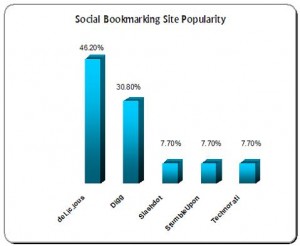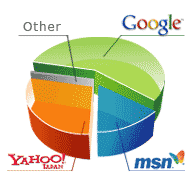Getting a start on local SEO
Tuesday, October 26th, 2010
Local SEO, which is the art and science of ranking well in search engines for local results, is one of those things that is easy to learn but hard to master, so let’s focus on the easy part. Say you’ve got a website and it’s not ranking in Google very well for whatever search term you desire results from. What is there to do about it?
These are some simple things you can do, or even better get someone else to do for you, to start off your local SEO campaign.
Figure Out Your Target Audience
Until you know who you are targeting there is not much point in doing local SEO. What words are your potential customers searching with when you want to be found? What are different modes are they in when they are searching? Are they ready to buy? Are they just doing research? Are they big spenders or are they cheapskates?
In general you should pick terms that match up with your service, that you think will convert well and that have good search volume. To get an idea of search volume use Google’s Adwords Keyword Tool.
Then once you come up with your target keyword list…
Update Your Page Titles
The “title tag” is perhaps the most important element of SEO and local SEO. These are the words that appear at the top of your web browser when you are on a page. They are also the words that show up in the blue links in Google.
Put the search terms you are targeting in your page titles. In general keep the titles as brief as possible while at the same time making them appealing to searchers. Put the most important keywords at the beginning of the title. Don’t worry about getting this perfect the first time as these are very easy to change and Google usually reacts to these changes quickly.
Make Each Page Title Unique and Add Your City Name
It is also important in local SEO that all of the pages on your site have unique page titles. Make sure you add your city name to the titles as a lot of people search for your service in your city.
You also should check the meta descriptions tags of each page to make sure those are unique as well.
Add a Few Internal Links
The number of links a page gets from its own site and which pages link to it matters. The home page is the most important on the site and so the pages that are linked to from the home page are also important. Figure out which pages you want to rank the most and add links from other pages to these pages. Make sure you use relevant keywords in the text of those links. For example if you want to rank the page for “pasta” use the word “pasta” in the text of the links that go to that page. Try not to use the exact same phrases in each link to make it look more natural. For example in some of the links use “best pasta” or “terrific pasta”.
Add Your Address to Every Page
Ideally every page should have your address and phone number. This is helpful for users but it also reinforces your location to the search engines. If your business has multiple locations then you may want to create a separate page for each location or at least a single page that lists all locations. Make sure you link to these pages from as many pages as possible on the site. It would probably be a good idea to list as many location names as possible on the home page too.
Also use these tried and true tips for local SEO improvement.
Get Links
None of this stuff will work very well if you don’t have any links to your site. The big search engines look at links from other sites as a sign of quality and trust. So you should spend some time thinking about what other sites you think you can get links from. Here are some of the obvious ones:
– Chambers of commerce/local business groups
– Local business directories/Local newspaper site
– Friends who have sites (including your kid’s blog)
– Partners/Vendors
There are hundreds of other ways to get links like writing articles for other sites, sending out press releases, adding your business info to social media sites, etc.
It’s important to understand that local SEO is not a one-time thing just like running a TV ad campaign is not a one-time thing. It’s a marketing tactic like any other. And as more people use the Web to find local services, local SEO could become one of the more important components of your marketing plan. So get familiar with it today so you can master it tomorrow.
If you have any more questions about local SEO please use our contact form for Local SEO Asheville.



